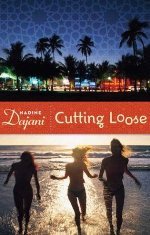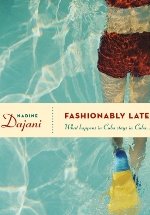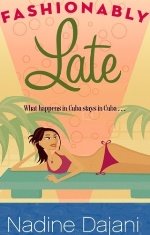With Life taking a turn down Stress Lane lately (it’s more like Stress highway, really) I’ve been turning to cartoons for my escapist comedy fix. Mostly because the local Blockbusters has laid siege to my late-twenty-something sensibilities by stocking a spate of movies starring, among other people I never want to hear about ever again, Paris Hilton and Lindsey Lohan. (Jon Stewart, in a recent interview with Robin Wright Penn summarized his take on The Problem with Hollywood with this little golden nugget: less Lindsey Lohan, more Robin Wright Penn”).
I have to say, it seems like cartoons nowadays are willing to go where other Hollywood blockbusters fear to tread, that is, escapism sprinkled with a dusting of tell-it-like-it-is social criticism. Considering these movies are big with families, they reach a sizeable chuck of the average (North) American family, unlike the indies, (informative, entertaining, but not nearly as accessible to or sought after by, wide audiences).
Take the movie I watched last night, Over The Hedge. Fabulous. Loved it. If you like Steve Carell’s antics on The Office, you’ll love his rendition of the “idiot savant, minus the savant” Hammy the hyperactive squirrel. Besides the tight plot, hilarious punch lines, sweet characterization and impressive 3-D animation, there’s a clever little embedded message about waste. Specifically how much we humans generate of it. I especially loved how the message was integral to the plot, not an afterthought. Aspiring writers could learn a lot from that.
The gist of the plot is this: creatures of a forest (a turtle, a father-daughter possum duo, a family of hedgehogs, a skunk, and aforementioned hyper squirrel) wake up from hibernation one year only to find that an “oasis of tranquility” suburb has sprung up around them over the winter. Their world is now separated from that of the humans by a mysterious hedge, which they call “Steve” (for lack of a better idea). Enter a renegade, n’er-do-well worldly raccoon who educates them about the empire of the humans, fur-less creatures whose whole lives revolve around food. Transporting it, storing it, freezing it, cooking it, having it delivered, consuming it, and, of critical interest to our furry protagonists, throwing most of it away. Thus begins the ideological struggle between the innovator raccoon who gets the animals addicted to Doritos and Coca Cola, and the old-school turtle preaching the virtues of a diet of bark, leaves, and nuts.
The message here isn’t too subtle, but it’s still a worthy one, and not just to kids who prefer to leave the veggies on their plate untouched.
I waste. A lot. But here’s the deal: if I ate everything that was put in front of me in a restaurant, if I ordered Whoppers instead of Whopper Jrs., and ordered the combo every time someone behind a cash register offered it to me (and let’s not even mention supersizing), I would be obese. Not fat, Obese. There’s been a lot written about this so I won’t go too far with this but, as you may have observed, the more fresh, high quality your food is (like say fruits, veggies, and fresh lean meat), the more expensive it is (compare how much it would cost to make a burger, fries and salad out of scratch with buying a McDonald’s combo meal). So obesity is partially an economic class issue as well (which, in America, makes it a race issue to boot). Add on the Wal-Mart effect which I blogged about a few weeks ago (i.e. bringing down prices – including the price of our food – by bringing down quality), and you have a cartoon with a seemingly simple message that actually goes a long, long way. The kind of “waste” addressed in Over the Hedge isn’t the kind your mama warned you about when she made you eat your broccoli and carrots. It’s the kind of “waste” we as a society have accepted to live with in order to protect our individual right to a high-fat burger, a cheap salmon fillet, or a chicken nuggets made from mutant, diseased chickens. And then people wonder why they’re constantly fighting losing battles with their expanding waistlines. Yes, individual responsibility is vital, but so is recognizing when the odds are stacked against you (more so if you have the misfortunes of being poor and/or a member of a disadvantaged minority). Over the Hedge, people. It’s mindless escapism minus the mindless.
The other cartoon I saw recently has been getting some heat from conservative pundits who’ve called it “left-wing propaganda”. I’m referring to Happy Feet, the penguin movie (penguins are having a great decade in Hollywood, wouldn’t you say?).
Though global warming is never actually addressed full on, it’s in every scene, behind every plot twist. In the cracked ice-sheets, the cascading snow off of cliffs, the floating bits off icebergs that carry Mumble the penguin away from his family. And, here too, the human obsession with hoarding food (thus disrupting food chains which ultimately leads to mass extinction across many species) drives the plot.
I’m loving how it’s mostly cartoons and “fake”-news shows like Jon Stewart and Colbert who are raising awareness – in a way that appeals to the masses – about some of the most pressing issues of our times.
PS - Some very exciting writing news are on the way... stay tuned!
Subscribe to:
Post Comments (Atom)




1 comment:
I loved the movie OVER THE HEDGE. "But I want the cookie".
Also love Robin Wright Penn. I go to the TIFF every year and she's almost always in at least one film and they're always interesting and always good. If you ever want a truly disturbing movie experience... See if you can get your hands on Sorry, Haters. I'm not sure if it was ever released to theatres or available on DVD yet. I can't tell you much about it, because it would ruin the story... but I think you might find it interesting. It actually borrows from the Maher Arar case, too... although somewhat indirectly.
It's a great movie for turning every expectation you have at the beginning upside down. And she was astoundingly good.
Post a Comment